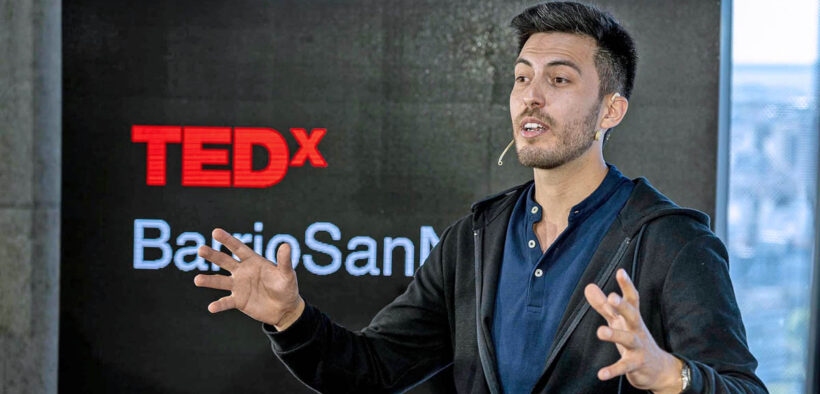AI gives Puerto Rico fintechs a competitive edge

Fintech companies are operating in one of the least saturated business sectors for artificial intelligence adoption, granting Puerto Rico firms an opportunity to boost their competitive edge.
AI-enabled startups take about 30 cents of every venture capital (VC) dollar in fintech — half the overall rate, according to “The Future of Fintech 2025,” a report by Silicon Valley Bank (SVB).
“Regulatory constraints and trust barriers that are unique to financial services are making adoption slow-going,” SVB reported.
“In Puerto Rico, AI is being integrated into fintech gradually, at a steady pace,” Héctor Jirau, executive director of Parallel 18, the business acceleration program of the Puerto Rico Science, Technology and Research Trust, told News is my Business.
“There’s a lot of room for growth there. It’s just a bit slow because of regulatory constraints and because of how expensive it is to get into it,” he said.
Fintech companies are leveraging AI for applications and benefits including fraud detection and prevention, credit scoring and lending, enhanced customer service, algorithmic trading and investment, risk management and compliance (RegTech), and operational efficiency.
The global market size of AI in fintech, which was valued at $9.45 billion in 2021, is projected to reach $41.1 billion by 2030, growing at a compound annual rate of 16.5% from 2022 to 2030, Grand View Research reported.
A powerful fintech ally
“The effect of AI on fintech is significant, and companies are investing a lot of time and resources in incorporating it,” Nicolas Galarza, founder of San Juan-based Wealth2B, told News is my Business.
Wealth2B provides fintechs and banks with a single application programming interface that enables them to open segregated investment accounts in the U.S. and offer investment products directly from their platforms.
The company uses AI tools such as ChatGPT Business, Cursor and N8N to generate documents, record and transcribe meetings, develop software, perform tasks and make decisions “as if it were a project manager, constantly updating the status of projects,” he said.
Galarza described AI’s role in software development as “impressive,” noting that nearly 70% of Wealth2B’s production code is created with AI.
“We also have several automated roles that would normally be performed by humans,” he continued. “The truth is that if you configure it right, AI agents rarely make mistakes. They do — it’s not possible to have a perfect system — but less than humans, and they’re more affordable.”
An AI-powered competitive edge
Galarza pointed out that fintech companies that start up using AI have a “huge advantage” over established firms.
“Companies that start with AI don’t need to raise as much capital. They don’t need to hire all those people right away. Some of those roles can be automated, especially when you’re small, just getting started. Then, later, when you’re profitable, you can grow your team,” he explained.
Established companies, on the other hand, may face an uphill battle.
“Companies that weren’t born with AI have a long and arduous adaptation process, especially large companies with hundreds or thousands of employees. Those companies are going to lose their competitiveness to smaller businesses that are born with AI, can go faster and don’t have legacy systems to convert and maintain,” Galarza said.
As a result, it will not be possible to compete without AI, he observed. “It’s going to be interesting to see how large companies, especially traditional ones, will compete with startups that, with little capital but lots of automation, enter the banking and finance industry.”
Launched in January 2024, Wealth2B started developing with AI this year. Coding with AI was so superior that the company chose to toss what it had built traditionally and replace it with AI-generated code.
“It’s a shame we couldn’t start with AI because the coding is better. So, in many cases, we went back to zero,” Galarza said.
“But we’re a small team. For a big bank to do that would cost millions of dollars, and they would face internal resistance. While they’re struggling with this, the new companies can [work with AI] from the start,” he added.




